#max wright
Explore tagged Tumblr posts
Text

#tv shows#tv series#polls#alf#paul fusco#max wright#anne schedeen#1980s series#us american series#have you seen this series poll
82 notes
·
View notes
Text

22 notes
·
View notes
Text
Thanks for Playing

Album: Homestuck Vol. 10 Composer: Max Wright Leitmotifs: None Characters: Calliope
#homestuck music tournament#homestuck#homestuck music#Thanks for Playing#Homestuck Vol. 10#Max Wright#Calliope#Bandcamp
13 notes
·
View notes
Photo
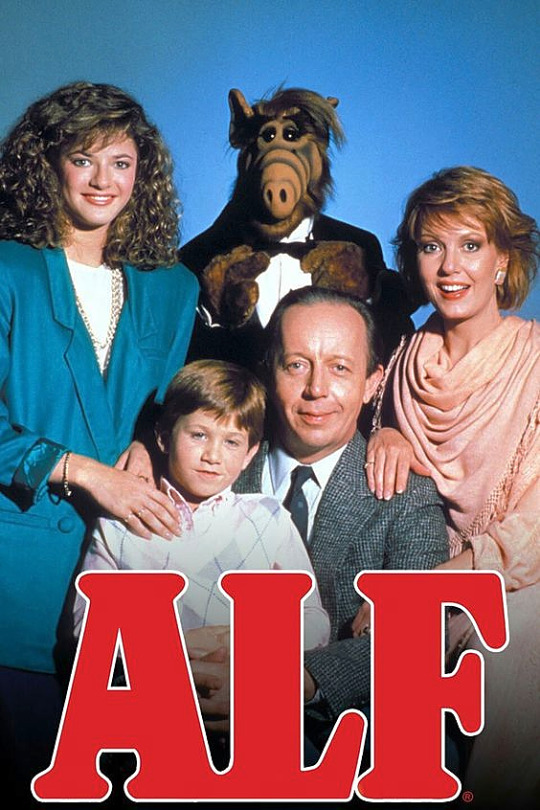
ALF (1986-1990)
205 notes
·
View notes
Note
Did you watch Alf just to see Trevor Ochmonek later in life?
Nah… I remember watching Alf for just Alf.
But I do remember Trevor Ochmonek and now would re-watch it for him and strangely enough, Max Wright.
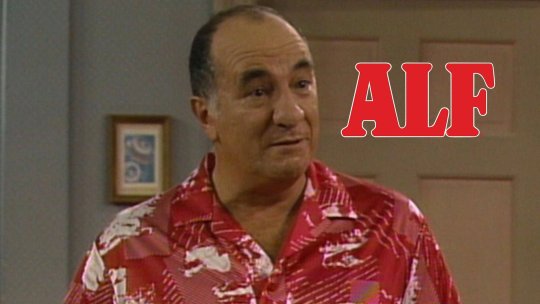

11 notes
·
View notes
Text
Murder She Wrote, s7 e15 ‘The Taxman Commeth’ guest stars:

Fred Willard (Roseanne, Everybody Lives Raymond, Saturday Night Live, The Odd Couple 2016, Anchorman 2, Drunk History, Hot n Cleveland, Castle, Wall-E, Twilight Zone Radio Dramas, Stargate SG1, etc)

Max Wright (ALF, the Drew Carey show, Mad About You, the Early Edition, The John Laroquette Show, friends, Murphy Brown, Quantum Leap, etc)
#Fred Willard#max wright#murder she wrote#character actors#Murder she wrote guest stars#murderer she wrote season 7#ALF#the Drew Carey show#Mad About You#the Early Edition#The John Laroquette Show#friends#Murphy Brown#Quantum Leap#Roseanne#Everybody Lives Raymond#Saturday Night Live#The Odd Couple 2016#Anchorman 2#Drunk History#Hot n Cleveland#Castle#Wall-E#Twilight Zone Radio Dramas#Stargate SG1
3 notes
·
View notes
Text





1 note
·
View note
Text
Es 1988, son las 8 de la noche y la familia se reúne para cenar alrededor de la #tv para ver #ALF. La vida es buena.
XarliClub #intro #TBT #TBThursday
movie #tv #cinemastodon #filmsky 🎬
#xarliclub#movie#movies#series#80s#tv#tv series#alf#max wright#anne schedeen#andrea elson#benji gregory
0 notes
Text

Up next on my 90's Fest Movie 🎬 🎞 🎥 🎦 📽 marathon...Grumpier Old Men (1995) on glorious vintage VHS 📼! #movie #movies #comedy #grumpyoldmen #grumpieroldmen
#waltermatthau #ripwaltermatthau #jacklemmon #ripjacklemmon #BurgessMeredith #ripburgessmeredith #AnnMargret #sophialoren #darylhannah #kevinpollak #MaxWright #ripmaxwright #vintage #VHS #90s #90sfest #durandurantulsas4thannual90sfest
#movie#movies#comedy#grumpy old men#grumpier old men#Walter Matthau#rip walter matthau#jack lemmon#rip jack lemmon#burgess meredith#rip burgess meredith#ann margret#sophia loren#daryl hannah#kevin pollak#max wright#rip max wright#vintage#VHS#90s#90s fest#duran duran tulsa's 4th annual 90s fest
0 notes
Text
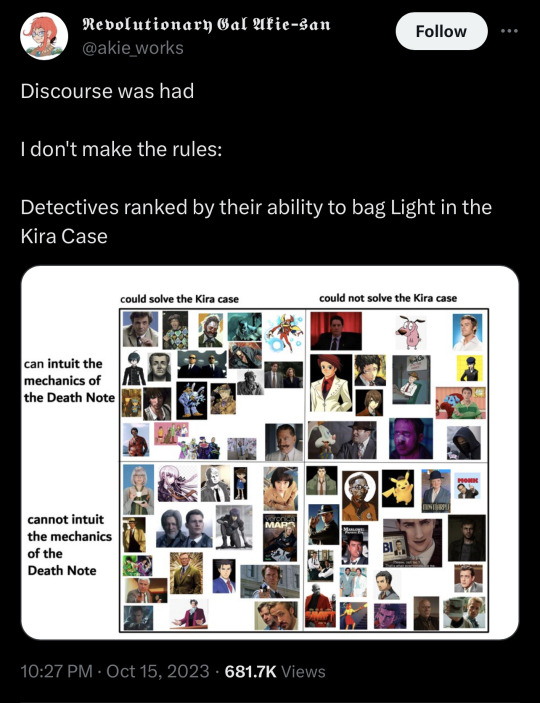
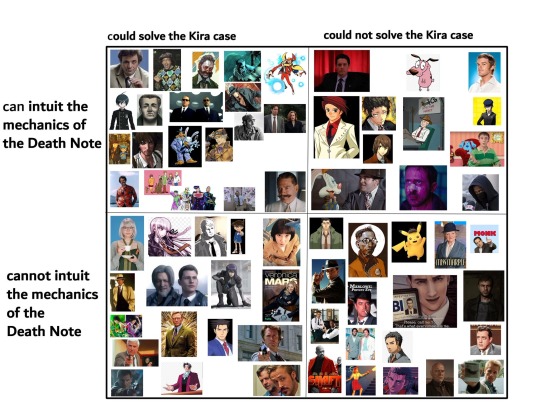
(link to original)
#too many things to tag and i don’t know a lot but#my favorite inclusions#columbo#batman#shuichi saihara#kyoko kirigiri#sam and max#charlie kelly#kamen rider#hidari shoutaro#philip#phoenix wright#blues clues#roger rabbit#hank schrader#death note#kira#light yagami
46K notes
·
View notes
Text
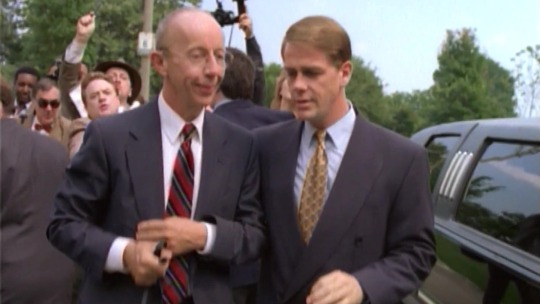
Max Wright and Philip E. Johnson in Early Edition (1996-2000) Thief Swipes Mayor's Dog
S1E5
Lottery fever grips Chicago with the jackpot climbing every night. Meanwhile, Gary tries to understand why someone would want to steal the Mayor's dog.
*Given that Flanagan was manipulating the lottery, it seems sloppy to not only write down the numbers to be picked, but to leave the numbers on the mayor's desk.
#Early Edition#1996#tv series#Thief Swipes Mayor's Dog#S1E5#adventure#comedy#drama#fantasy#newspaper#cat#Max Wright#Philip E. Johnson#Chicago#lottery jackpot#just rewatched
0 notes
Text
I REMEMBER WHEN THIS AIRED.
I never watched a single episode of The Norm Show before, so imagine my surprise when the friggen daughter from Unhappily Ever After and the dad from ALF strolled in as Team Rocket.
But I digress, the point being, Pokemon was HUGE and everyone was trying to ride the coattails.
remember how they used to just put Pokemon in anything?
77 notes
·
View notes
Text
Cobalt Corsair

Album: coloUrs and mayhem: Universe A Composer: Max Wright Leitmotifs: Hallowed Halls Characters: Mindfang, Andrew Hussie
#homestuck music tournament#homestuck#homestuck music#Cobalt Corsair#coloUrs and mayhem: Universe A#Max Wright#Hallowed Halls leitmotif#Mindfang#Andrew Hussie#Bandcamp
7 notes
·
View notes
Text
The one weird monopoly trick that gave us Walmart and Amazon and killed Main Street
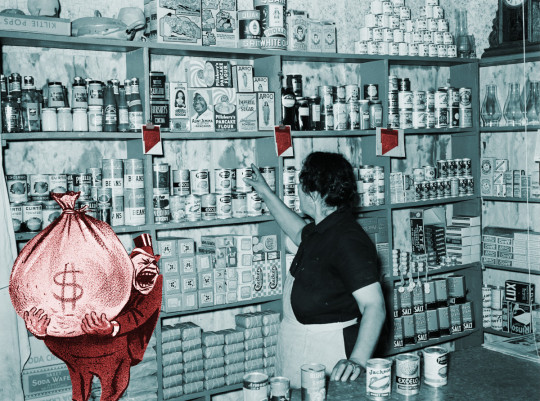
I'm coming to BURNING MAN! On TUESDAY (Aug 27) at 1PM, I'm giving a talk called "DISENSHITTIFY OR DIE!" at PALENQUE NORTE (7&E). On WEDNESDAY (Aug 28) at NOON, I'm doing a "Talking Caterpillar" Q&A at LIMINAL LABS (830&C).

Walmart didn't just happen. The rise of Walmart – and Amazon, its online successor – was the result of a specific policy choice, the decision by the Reagan administration not to enforce a key antitrust law. Walmart may have been founded by Sam Walton, but its success (and the demise of the American Main Street) are down to Reaganomics.
The law that Reagan neutered? The Robinson-Patman Act, a very boring-sounding law that makes it illegal for powerful companies (like Walmart) to demand preferential pricing from their suppliers (farmers, packaged goods makers, meat producers, etc). The idea here is straightforward. A company like Walmart is a powerful buyer (a "monopsonist" – compare with "monopolist," a powerful seller). That means that they can demand deep discounts from suppliers. Smaller stores – the mom and pop store on your Main Street – don't have the clout to demand those discounts. Worse, because those buyers are weak, the sellers – packaged goods companies, agribusiness cartels, Big Meat – can actually charge them more to make up for the losses they're taking in selling below cost to Walmart.
Reagan ordered his antitrust cops to stop enforcing Robinson-Patman, which was a huge giveaway to big business. Of course, that's not how Reagan framed it: He called Robinson-Patman a declaration of "war on low prices," because it prevented big companies from using their buying power to squeeze huge discounts. Reagan's court sorcerers/economists asserted that if Walmart could get goods at lower prices, they would sell goods at lower prices.
Which was true…up to a point. Because preferential discounting (offering better discounts to bigger customers) creates a structural advantage over smaller businesses, it meant that big box stores would eventually eliminate virtually all of their smaller competitors. That's exactly what happened: downtowns withered, suburban big boxes grew. Spending that would have formerly stayed in the community was whisked away to corporate headquarters. These corporate HQs were inevitably located in "onshore-offshore" tax haven states, meaning they were barely taxed at the state level. That left plenty of money in these big companies' coffers to spend on funny accountants who'd help them avoid federal taxes, too. That's another structural advantage the big box stores had over the mom-and-pops: not only did they get their inventory at below-cost discounts, they didn't have to pay tax on the profits, either.
MBA programs actually teach this as a strategy to pursue: they usually refer to Amazon's "flywheel" where lower prices bring in more customers which allows them to demand even lower prices:
https://www.youtube.com/watch?v=BaSwWYemLek
You might have heard about rural and inner-city "food deserts," where all the independent grocery stores have shuttered, leaving behind nothing but dollar stores? These are the direct product of the decision not to enforce Robinson-Patman. Dollar stores target working class neighborhoods with functional, beloved local grocers. They open multiple dollar stores nearby (nearly all the dollar stores you see are owned by one of two conglomerates, no matter what the sign over the door says). They price goods below cost and pay for high levels of staffing, draining business off the community grocery store until it collapses. Then, all the dollar stores except one close and the remaining store fires most of its staff (working at a dollar store is incredibly dangerous, thanks to low staffing levels that make them easy targets for armed robbers). Then, they jack up prices, selling goods in "cheater" sizes that are smaller than the normal retail packaging, and which are only made available to large dollar store conglomerates:
https://pluralistic.net/2023/03/27/walmarts-jackals/#cheater-sizes
Writing in The American Prospect, Max M Miller and Bryce Tuttle1 – a current and a former staffer for FTC Commissioner Alvaro Bedoya – write about the long shadow cast by Reagan's decision to put Robinson-Patman in mothballs:
https://prospect.org/economy/2024-08-13-stopping-excessive-market-power-monopoly/
They tell the story of Robinson-Patman's origins in 1936, when A&P was using preferential discounts to destroy the independent grocery sector and endanger the American food system. A&P didn't just demand preferential discounts from its suppliers; it also charged them a fortune to be displayed on its shelves, an early version of Amazon's $38b/year payola system:
https://pluralistic.net/2022/11/28/enshittification/#relentless-payola
They point out that Robinson-Patman didn't really need to be enacted; America already had an antitrust law that banned this conduct: section 2 of the the Clayton Act, which was passed in 1914. But for decades, the US courts refused to interpret the Clayton Act according to its plain meaning, with judges tying themselves in knots to insist that the law couldn't possibly mean what it said. Robinson-Patman was one of a series of antitrust laws that Congress passed in a bid to explain in words so small even federal judges could understand them that the purpose of American antitrust law was to keep corporations weak:
https://pluralistic.net/2023/04/14/aiming-at-dollars/#not-men
Both the Clayton Act and Robinson-Patman reject the argument that it's OK to let monopolies form and come to dominate critical sectors of the American economy based on the theoretical possibility that this will lead to lower prices. They reject this idea first as a legal matter. We don't let giant corporations victimize small businesses and their suppliers just because that might help someone else.
Beyond this, there's the realpolitik of monopoly. Yes, companies could pass lower costs on to customers, but will they? Look at Amazon: the company takes $0.45-$0.51 out of every dollar that its sellers earn, and requires them to offer their lowest price on Amazon. No one has a 45-51% margin, so every seller jacks up their prices on Amazon, but you don't notice it, because Amazon forces them to jack up prices everywhere else:
https://pluralistic.net/2024/03/01/managerial-discretion/#junk-fees
The Robinson-Patman Act did important work, and its absence led to many of the horribles we're living through today. This week on his Peoples & Things podcast, Lee Vinsel talked with Benjamin Waterhouse about his new book, One Day I’ll Work for Myself: The Dream and Delusion That Conquered America:
https://athenaeum.vt.domains/peoplesandthings/2024/08/12/78-benjamin-c-waterhouse-on-one-day-ill-work-for-myself-the-dream-and-delusion-that-conquered-america/
Towards the end of the discussion, Vinsel and Waterhouse turn to Robinson-Patman, its author, Wright Patman, and the politics of small business in America. They point out – correctly – that Wright Patman was something of a creep, a "Dixiecrat" (southern Democrat) who was either an ideological segregationist or someone who didn't mind supporting segregation irrespective of his beliefs.
That's a valid critique of Wright Patman, but it's got little bearing on the substance and history of the law that bears his name, the Robinson-Patman Act. Vinsel and Waterhouse get into that as well, and while they made some good points that I wholeheartedly agreed with, I fiercely disagree with the conclusion they drew from these points.
Vinsel and Waterhouse point out (again, correctly) that small businesses have a long history of supporting reactionary causes and attacking workers' rights – associations of small businesses, small women-owned business, and small minority-owned businesses were all in on opposition to minimum wages and other key labor causes.
But while this is all true, that doesn't make Robinson-Patman a reactionary law, or bad for workers. The point of protecting small businesses from the predatory practices of large firms is to maintain an American economy where business can't trump workers or government. Large companies are literally ungovernable: they have gigantic war-chests they can spend lobbying governments and corrupting the political process, and concentrated sectors find it comparatively easy to come together to decide on a single lobbying position and then make it reality.
As Vinsel and Waterhouse discuss, US big business has traditionally hated small business. They recount a notorious and telling anaecdote about the editor of the Chamber of Commerce magazine asking his boss if he could include coverage of small businesses, given the many small business owners who belonged to the Chamber, only to be told, "Over my dead body." Why did – why does – big business hate small business so much? Because small businesses wreck the game. If they are included in hearings, notices of inquiry, or just given a vote on what the Chamber of Commerce will lobby for with their membership dollars, they will ask for things that break with the big business lobbying consensus.
That's why we should like small business. Not because small business owners are incapable of being petty tyrants, but because whatever else, they will be petty. They won't be able to hire million-dollar-a-month union-busting law-firms, they won't be able to bribe Congress to pass favorable laws, they can't capture their regulators with juicy offers of sweet jobs after their government service ends.
Vinsel and Waterhouse point out that many large firms emerged during the era in which Robinson-Patman was in force, but that misunderstands the purpose of Robinson-Patman: it wasn't designed to prevent any large businesses from emerging. There are some capital-intensive sectors (say, chip fabrication) where the minimum size for doing anything is pretty damned big.
As Miller and Tuttle write:
The goal of RPA was not to create a permanent Jeffersonian agrarian republic of exclusively small businesses. It was to preserve a diverse economy of big and small businesses. Congress recognized that the needs of communities and people—whether in their role as consumers, business owners, or workers—are varied and diverse. A handful of large chains would never be able to meet all those needs in every community, especially if they are granted pricing power.
The fight against monopoly is only secondarily a fight between small businesses and giant ones. It's foundationally a fight about whether corporations should have so much power that they are too big to fail, too big to jail, and too big to care.

Community voting for SXSW is live! If you wanna hear RIDA QADRI and me talk about how GIG WORKERS can DISENSHITTIFY their jobs with INTEROPERABILITY, VOTE FOR THIS ONE!

If you'd like an essay-formatted version of this post to read or share, here's a link to it on pluralistic.net, my surveillance-free, ad-free, tracker-free blog:
https://pluralistic.net/2024/08/14/the-price-is-wright/#enforcement-priorities
#pluralistic#Robinson-Patman Act#ftc#alvaro bedoya#monopoly#monopsony#main street#too big to jail#too big to care#impunity#regulatory capture#prices#the american prospect#Max M Miller#Bryce Tuttle#a and p#wright patman
2K notes
·
View notes
Text


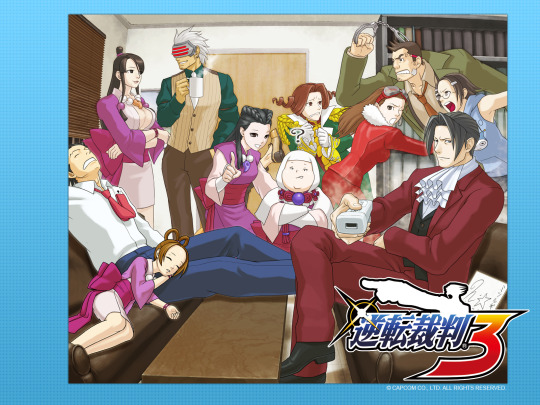
I love all of these and I love that they are official.
Gumshoe, Cody, and Lotta not knowing what a Wii is in the first one.
Edgeworth getting Will's autograph in the second. And Max Galactica doing a trick for Maya and Pearl (lemme headcanon it as the anime version he's a much more likable character there)
Desirée protecting Ron from Gumshoe (leave my boy alone, Gumshoe!) in the third. With Mia talking with Godot and Iris teaching Bikini how to play on the wii!
I love these so much!
#Ace Attorney#Phoenix Wright: Ace Attorney#Ace Attorney: Justice For All#Ace Attorney: Trials And Tribulations#Phoenix Wright#Maya Fey#Larry Butz#Miles Edgeworth#Dick Gumshoe#Penny Nichols#Cody Hackins#Lotta Hart#Will Powers#Pearl Fey#Max Galactica#Franziska von Karma#Maggey Byrde#Godot#Ron DeLite#Desirée DeLite#Iris Hawthorne#Sister Bikini#Mia Fey#Regina Berry#Gyakuten Saiban#eway talks
2K notes
·
View notes
